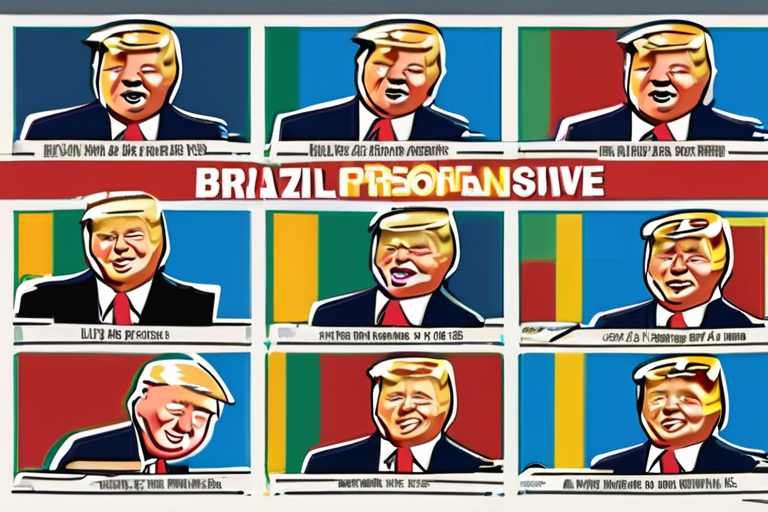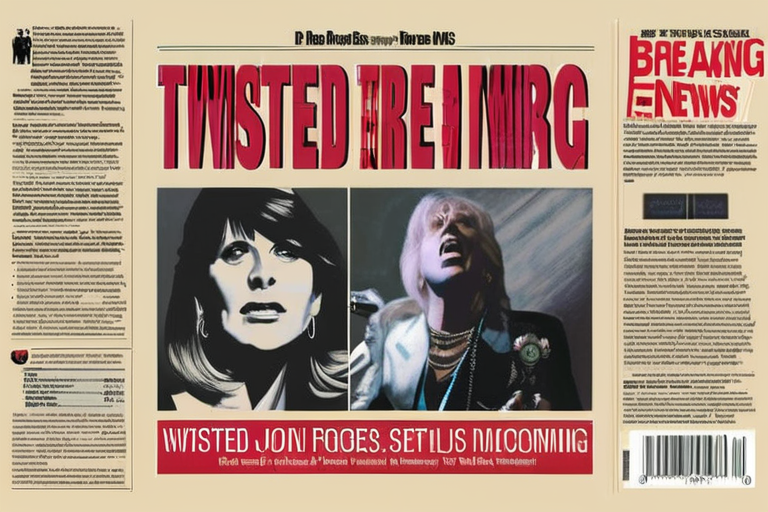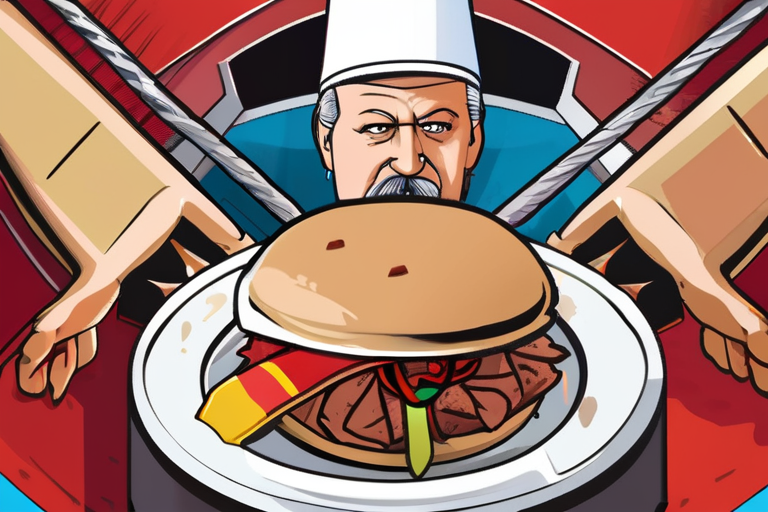Brazil's President Asks US to Scrap Tariffs in 'Friendly' Call with Trump
In a bid to ease tensions between the two nations, Brazilian President Luiz Inácio Lula da Silva urged U.S. President Donald Trump to scrap tariffs on Brazilian imports and sanctions against its officials during a video call on September 11.
According to the Brazilian presidency, the call was described as "friendly" and saw both leaders swapping phone numbers after months of friction. The conversation marked a significant shift in tone from previous interactions between the two nations, which had deteriorated due to Trump's efforts to pressure Brazilian authorities into abandoning the coup trial of his far-right ally, Jair Bolsonaro.
The U.S. introduced 50 tariffs on Brazilian imports in August, partly as a result of what Trump called the "witch-hunt" against Brazil's former president, who was accused of trying to seize power after losing the 2022 election to Lula. The move sparked widespread criticism from Brazilian officials and experts, who argued that it would harm bilateral trade relations.
"We are open to dialogue and cooperation with the U.S., but we cannot accept tariffs and sanctions that undermine our sovereignty," said a spokesperson for the Brazilian presidency.
The call between Trump and Lula da Silva comes as tensions between the two nations continue to simmer. In August, the U.S. efforts to derail Bolsonaro's prosecution, which included sanctioning Brazilian officials and revoking visas, failed. On September 11, Bolsonaro was convicted and sentenced to 27 years in prison.
The U.S. trade tariffs have had a significant impact on Brazil's economy, with many experts predicting that they would lead to job losses and economic contraction. "The tariffs are a clear example of the U.S.'s protectionist policies, which harm not only Brazilian interests but also global trade," said Paulo Nogueira Batista Jr., a trade expert at the University of São Paulo.
While some analysts see the call between Trump and Lula da Silva as a positive development, others remain skeptical. "We need to see concrete actions from the U.S. before we can trust their intentions," said Maria Luiza Vianna, a foreign policy expert at the Getúlio Vargas Foundation.
The current status of the tariffs remains unchanged, with no indication that Trump has agreed to scrap them. However, the call between the two leaders marks a significant shift in tone and may pave the way for future cooperation on trade and other issues.
In a statement, the U.S. Embassy in Brasília said it would not comment on the specifics of the call but welcomed "any efforts to improve bilateral relations."
The next development is expected to come from the Brazilian government, which has announced plans to seek a meeting with Trump to discuss the tariffs and sanctions. The outcome of these talks remains uncertain, but one thing is clear: the fate of Brazil-U.S. relations hangs in the balance.
Background:
In August 2022, Jair Bolsonaro lost the presidential election to Luiz Inácio Lula da Silva.
Trump's efforts to pressure Brazilian authorities into abandoning the coup trial of Bolsonaro led to a deterioration in bilateral relations.
The U.S. introduced 50 tariffs on Brazilian imports in August, sparking widespread criticism from Brazilian officials and experts.
Additional perspectives:
The call between Trump and Lula da Silva has been welcomed by some analysts as a positive development, while others remain skeptical.
Many experts predict that the tariffs will have a significant impact on Brazil's economy, leading to job losses and economic contraction.
Some analysts see Haiti as an area where the two leaders can cooperate, citing potential opportunities for joint development projects.
Current status:
The U.S. trade tariffs remain in place, with no indication that Trump has agreed to scrap them.
The Brazilian government has announced plans to seek a meeting with Trump to discuss the tariffs and sanctions.
The outcome of these talks remains uncertain, but one thing is clear: the fate of Brazil-U.S. relations hangs in the balance.
*Reporting by Theguardian.*


 Hoppi
Hoppi

 Hoppi
Hoppi

 Hoppi
Hoppi

 Hoppi
Hoppi

 Hoppi
Hoppi

 Hoppi
Hoppi










